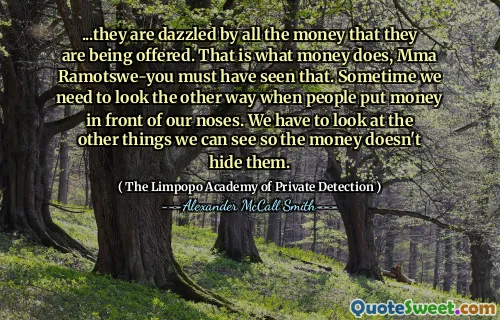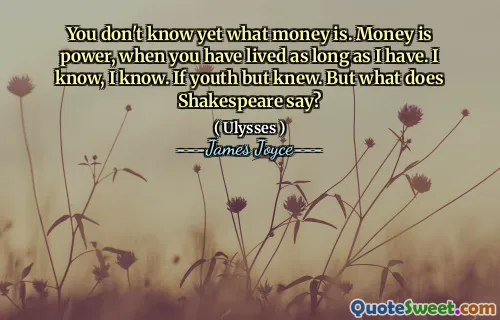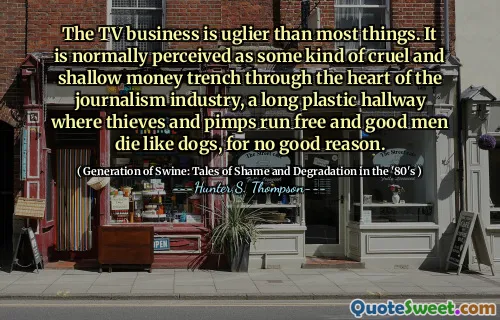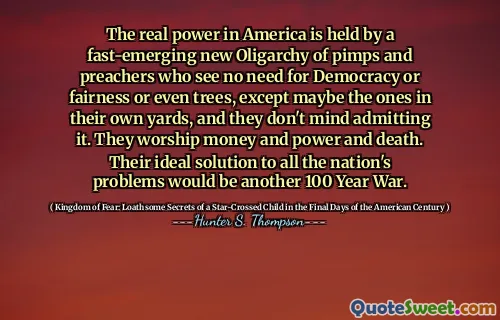Only merchants have money to waste, and what are they but parasites who create nothing, grow nothing, make nothing but feed off another's labor?
In James Clavell's novel "Shōgun," a critical perspective on merchants is presented, depicting them as exploiters rather than creators. The quote highlights the notion that merchants, who possess wealth, do so at the expense of actual producers. It suggests that they do not contribute to society in a meaningful way, instead drawing profits from the hard work of others. The characterization of merchants as "parasites" implies a broader commentary on societal structures, where wealth accumulation is facilitated by the labor of those who engage in production. This critique raises questions about the value placed on different types of labor and the moral implications of economic systems that prioritize profit over contribution.
In James Clavell's novel "Shōgun," a critical perspective on merchants is presented, depicting them as exploiters rather than creators. The quote highlights the notion that merchants, who possess wealth, do so at the expense of actual producers. It suggests that they do not contribute to society in a meaningful way, instead drawing profits from the hard work of others.
The characterization of merchants as "parasites" implies a broader commentary on societal structures, where wealth accumulation is facilitated by the labor of those who engage in production. This critique raises questions about the value placed on different types of labor and the moral implications of economic systems that prioritize profit over contribution.





